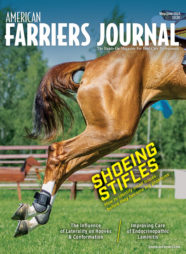Lawmakers and animal-rights activists who have pushed the federal government to crack down on an illegal practice that’s sometimes used to give Tennessee Walking Horses their exaggerated, high-stepping gait are feeling encouraged that President Barack Obama’s administration appears ready to act.
The United States Department of Agriculture served notice in April that it is proposing a new rule to strengthen federal requirements aimed at eliminating the practice known as “soring.”
The proposed changes would update the existing Horse Protection Act and would impact everything from inspection procedures to the responsibilities of managers of show horses, exhibitions, sales and auctions. The agency said it’s also looking at devices, equipment, substances and practices that can cause soring.
In late May, a bipartisan group of House members urged the administration to move as quickly as possible on the new rule so it can be finalized before Obama leaves office next January.
“These changes will not destroy the Tennessee Walking Horse industry, as you may hear from opponents of the proposed rule, but will instead save this industry from imploding because of the bad actors who continue to abuse horses at the expense of the breed's reputation,” the lawmakers said in a letter to Shaun Donovan, director of the White House Office of Management and Budget.
Donovan’s office is reviewing the proposed changes, a key step before the proposal is released to the public for comment.
The letter to Donovan was signed by 175 House members, including U.S. Rep. Steve Cohen, a Memphis Democrat.
“Soring horses is both illegal and morally unacceptable, but some trainers are clearly taking advantage of lax oversight and wide loopholes to do it anyway,” Cohen said last week. “We need to strengthen enforcement of the Horse Protection Act and ensure that trainers are following the law to finally put an end to this terrible abuse.”
Exactly what the Obama administration is planning is not yet clear because the proposed rule hasn’t been released for public comment.







Post a comment
Report Abusive Comment